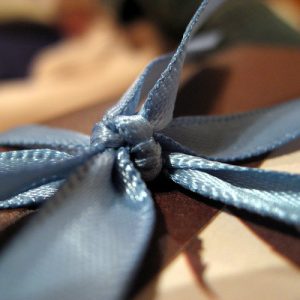In the weeks leading up to Hanukkah, my inbox was filled with multiple invitations from a diverse array of journalists to talk about the holiday. A writer for The Atlantic wanted to know more about Hanukkah’s history in America; a reporter for Time plied me with questions about contemporary practice, while her counterpart at the Wall Street Journal, appropriately enough, zeroed in on Hanukkah gelt.

Much as I appreciate, and am even flattered by, the burst of interest in my perspective -- after all, the last time I experienced such a show of popularity was back in 10th grade -- I’m curious about the media’s attentiveness. Surely, it’s not for want of other newsworthy stories; we’re hardly experiencing a slow news cycle. What’s more, near as I can tell, there are no new and startling developments in the way in which American Jews mark the holiday, apart, say, from substituting crème fraiche for sour cream atop potato latkes. This latest dollop of culinary innovation may have the traditionalists among us all riled up, but it hardly qualifies as journalistic fodder. What, then, might account for the current expression of interest in the Festival of Lights?
I suspect it has something to do with persistence. Though of ancient vintage, Hanukkah hasn’t bit the dust, as have so many other equally hoary festivals. Instead, it keeps chugging along, accruing new meanings and new practices along the way, especially in the United States where a host of factors over time -- consumerism, the rise of the State of Israel and intermarriage, among them -- have endowed the holiday with a new lease on life.
In the 1920s, the availability of new foodstuffs such as Crisco allied “latkes and modern science,” contemporizing the traditional tuber dish. In the immediate postwar era, American Jews increasingly associated the ancient Maccabees with modern-day Israeli soldiers, heightening Hanukkah’s relevance. Today, intermarried families make a point of celebrating both Hanukkah and Christmas, extending its reach and giving rise to a new genre of humorous greeting card that takes the sting out of the so-called “December dilemma.”
An exercise in adaptation, Hanukkah has stayed the course -- which, come to think of it, might well explain its appeal to the Fourth Estate. At a time of wholesale and rapid change, the holiday’s endurance is something to write about.
Spin on, Hanukkah!



